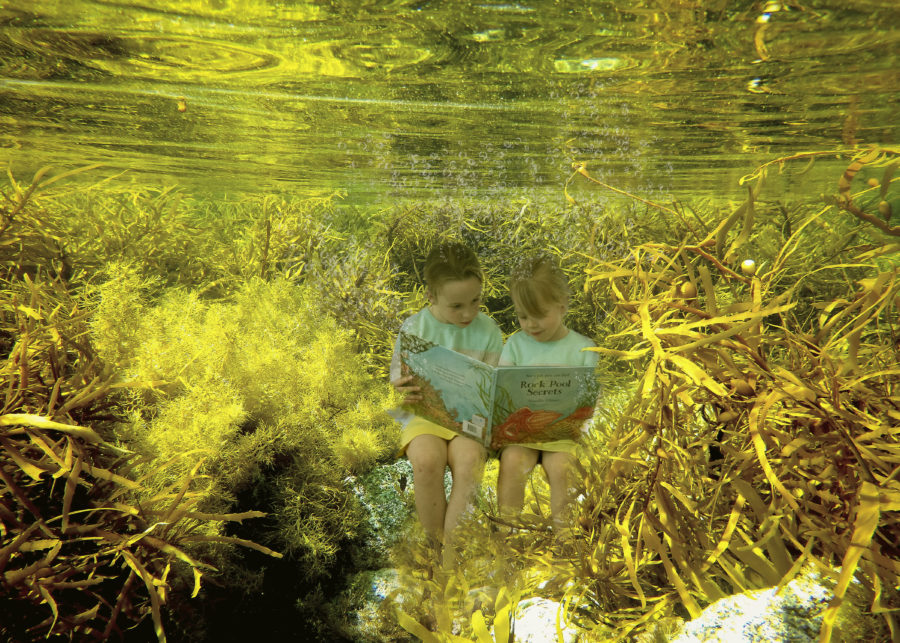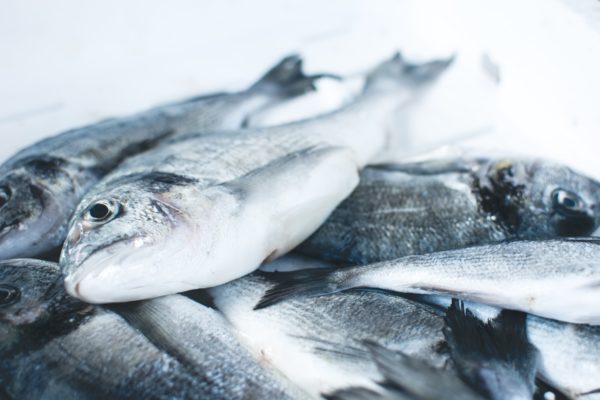Despite its integral role in our lives, we know more about the moon than the ocean. But Deakin’s Dr Prue Francis is working to change this.
We rely on the ocean for our survival. Its waters produce over half of the world’s oxygen and it absorbs huge quantities of carbon dioxide. It also provides us with food and helps to regulate the weather.
But despite its integral role in our lives, we have more collective knowledge about the moon than the ocean floor.
Dr Prue Francis – a Lecturer in Science Professional Practice at Deakin University – is setting out to change this. We sat down with her to talk about how she’s instilling a curiosity and respect for the ocean into the next generation.
Inspiring the next stewards of the sea
Dr Francis has taken a non-traditional approach to the world of academia; initially focusing on marine ecology research, she has now combined her twin passions, teaching and marine science, to form her own branch of research.
Now, her work largely focuses on ocean literacy – our ability to understand how the ocean functions and its place in our lives – and communicating it to the wider community. Dr Francis is particularly interested in sharing this knowledge with the next generation; she currently runs ocean literacy workshops for primary school students, encouraging them to become stewards of the sea.
“Everyone needs to be aware of the ocean – that we’re connected to it and we rely on it,” she says. “No matter where you are in the world, we need it. For one thing, it helps to control our weather; without it, our planet would be unliveable.”
Between running workshops, Dr Francis is finding other ways to share her passion for the ocean. She is currently supervising PhD student Cátia Freitas, whose research looks at teaching children marine science concepts through picture books.
Dr Francis is also working on her own ecology-themed picture book; The Great Southern Reef, co-authored with fellow Deakin Senior Lecturer Dr Paul Venzo. Set to be published in 2022, the book seeks to introduce young readers to the wide range of marine wonders found along a southern Australian beach to help raise the awareness of the Great Southern Reef.
The Great Southern Reef is a deliberately optimistic story. Dr Francis noted that many children’s books about sustainability and the environment are weighed down with climate grief. She says that, while it’s important to acknowledge the environmental disasters happening around us, it’s just as important to lay a path that imagines a future where these problems are being addressed.
“The work we are doing shows kids that the ocean is a wonderful place, explains why it’s under threat, and what we can do to remediate the threat.”
Across the globe, ocean literacy is falling through the cracks in the classroom. But Dr Francis’ research is bringing it back into focus.
You don’t need to be a marine biologist to teach ocean literary
For many teachers, the Australian Curriculum is already crammed with information that needs to be covered. It can be daunting to think that there’s a whole other topic that needs to be incorporated into lessons, another concept for teachers to get their heads around.
But Dr Francis says we don’t need to create a brand new unit of study. Instead, ocean literacy can be integrated into the regular curriculum in even the smallest of ways.
“Teachers have a lot of content to cover,” she says. “There’s opportunities to teach about the ocean in the current Australian curriculum, but teachers don’t always feel confident or have the resources to do so.”
For instance, many of us may have learned about life cycles for the first time by looking at a butterfly as it changes from an egg, to a caterpillar, to a chrysalis, to a butterfly. But what if we were to switch this example out for a life cycle from the ocean, such as a jellyfish?
With this approach, teachers don’t need to become marine biologists overnight in order to teach ocean literacy. Instead, it can be incorporated into any subject, in the simplest of ways – from writing your first persuasive essay in English about why we should take care of the ocean, to creating a graph of the different seashells you found on the beach in Maths.
Through her research, Dr Francis’ is currently exploring the different ways that teachers and students can bring the ocean into the classroom.
It’s okay to swim upstream
Dr Francis discovered her own passion for the sea when she was 14. After snorkelling in the wondrous world of the Great Barrier Reef, she knew she wanted to be a marine scientist, a certainty that stayed with her throughout her high school studies – despite growing up in a small country town over 200km away from the nearest beach, as well as being the only student in her year at school that pursued a career in marine science.
“I want more kids to realise they can follow their passion, that it’s okay to feel like you’re swimming upstream,” she says.
By incorporating ocean literacy in schools, Dr Francis hopes that children will be encouraged to pursue a career in STEM later in life, fostering a new generation of Australian scientists and marine scientists who work to rehabilitate our waters.
However, Dr Francis says their main takeaway from ocean literacy should be that they approach their relationship to the ocean from a place of curiosity and respect.
“At the end of the day whether students become marine scientists or not, we want them to continue exploring the ocean, be aware of the ocean’s role in their lives, and help reduce the impact we’ve had on our blue planet.”
Dr Prue Francis is a Lecturer in Science Professional Practice at Deakin University.
Photo credits: Donna Squire and Mel Wells.




